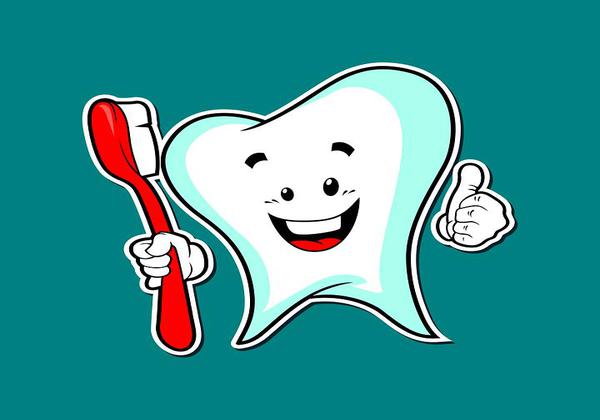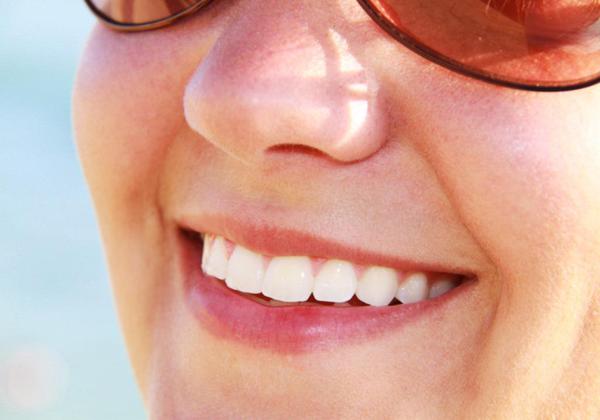Bananas are not just delicious, but highly nutritious too. They make for a healthy snack, along with being an amazing addition to your cereal bowl, smoothie, yogurt, cake, breads, muffin or desserts. The versatile fruit can fill you with energy, helps you slim down, reduce bloating, protect your heart, prevent the development of kidney stones and relieves indigestion. Although bananas are healthy, it is said that eating, too, many of them may cause some or the other health problems. Over-consuming this humble fruit can actually reverse all the benefits that banana may have to offer. If you are a banana lover, then it is time you look at some side effects of eating, too, many of them.
According to Macrobiotic Nutritionist and Health Practitioner Shilpa Arora, "Meals should be balanced with all macro-nutrients and micro-nutrients. Bananas are loaded with fiber and wholesome nutrients; however, too much of anything is bad. Some people follow banana diet, which means eating bananas through the day. Eating just banana means that you are missing out on protein and fat that is important for your diet."
As per Parmeet Kaur, Senior Dietitian, Narayana Superspeciality Hospital, "Overeating of anything is not good for the body as long as it's part of your daily routine. Increase amount of bananas when consumed can lead to many health concerns like weight gain, increase in sugar content and sometimes stimulate headaches and sleepiness. Bananas contain the amino acid tyrosine, which the body converts into tyramine. Tyramine may trigger migraine headaches attacks and pain. Bananas are rich in starch which eventually causes tooth decay that do more damage to teeth than any other chocolate, chewing gums or candies. Banana is rich in vitamin B6 and excess consumption of banana leads to the nerve damage. People who suffer from asthma should not consume banana in their diet. It also leads to inflammation and causes allergy. Thus, breathing becomes difficult."
1. Constipation
Unripe bananas can cause constipation as they contain a lot of starch, which is tough for the body to digest well. Bananas also contain a lot of fibre pectin that draws water from the intestines. It can make you even more constipated if you are dehydrated.
2. Nutrient imbalance
Your body needs a balanced assortment of nutrients to function well. If bananas dominate your diet, your stomach has little space for other healthy foods. According to the USDA guidelines, you should get two cups of fruit per day, which equals to about large bananas. This leaves room for adding vegetables, grains, protein, et al in your diet.
3. Excessive fiber may cause digestive problems
Moderate amount of fiber is good for your digestion. Consuming large quantities of fiber can cause abdominal cramps, gas, bloating. In fact, excessive fiber may interfere with the absorption of minerals like calcium and iron.
4.Weight gain
Bananas are high-calorie foods. While banana makes a good snack, consuming more than two bananas can definitely pack up more than 300 calories. Therefore, it is better to stick to only two bananas, if you are not eating any other fruit through the day.
5. Sleepiness
Bananas contain tryptophan, the amino acid that is known to help you sleep better. Carbohydrates in bananas are said to block amino acids from entering the brain, so there is an influx of tryptophan that may lead to an increase in the production of serotonin, which is another trigger for sleepiness. It also comprises magnesium that relaxes muscles, which can be another trigger.
6. Dental health problems
Banana is a sugary fruit; even if it contains natural sugars, it does bring some harm to your dental health. One of the most common problems by eating, too, much sugar is tooth decay. The acid from eating, too, many bananas can eat away your tooth enamel, further damaging your dental health.
7. Barely contains fat
Bananas have no fat, which makes it a good fruit to lose weight; however, everyone needs some amount of fat in their diet. Dietary fat is essential to brain development and good health. So, ensure combining it with foods that have healthy fats.
Bananas are super-healthy fruits, but as they say, anything in excess is bad for your health. So, ensure having not more than two bananas a day or consult your dietitian, who can help you alter your diet plan.

We often see toothpaste brands launching products with salt in them. The general idea is that a salt-enriched toothpaste is better for the teeth and overall dental hygiene. Cashing in on the same belief, some brands have been selling salt toothpastes. However, despite all the hype about salt as the ultimate dental superhero, it has some serious side effects too.
High-sodium foods have been pegged as key to poor dental hygiene and health. So what's the truth? Is salt really good for your teeth or is it another ingredient that has been promoted by big brands, just so there product sells?In the recent years, 'alternative' toothpastes have been gaining traction. These toothpastes are prepared from ingredients that are thought to be good for the teeth which include baking soda (sodium bicarbonate), coconut oil, cinnamon and even charcoal, besides of course, salt. A lot of people are switching to preparing homemade toothpastes using these ingredients.
Although all these ingredients have been claimed to be effective against dental problems like cavities and caries, salt has been the most controversial one. Also Read: Signs You Are Not Getting Enough Salt; Keep A Check!
Salt For Healthy Teeth
Salt has been a part of dental care regime for ages now. Rinsing your mouth with warm salt water is considered a good practice and our grandparents still recommend the same. Salt water mouthwash is given to patients of gum swelling or infections and also after oral surgeries because it is a natural disinfectant.
Salt was also one of the key ingredients in ancient tooth cleaning powders as it was considered an effective yet mild abrasive that could remove stains and dirt from teeth. However, it's advised not to rub too much salt on your teeth too often, as that might erode the enamel. Moreover, salt has been known to temporarily increase the pH levels of your mouth, making it difficult for the bacteria to thrive.
Harmful Effects Of Salt-Rich Foods On Teeth
Although using salt in your dental care regime might be beneficial, excessive salt in your diet might be a bad idea. A sodium-rich diet may not just lead to overall health problems; it's bad for oral health too. That's because more often than not, high sodium foods also tend to be rich in sugars, which are ultimately bad for health. Junk foods often tend to be high in both and hence, must be avoided for good dental hygiene. Also Read: 8 Genius Tricks to Reduce Excess Salt in Curries
How Effective Are Salt Toothpastes?
According to UP-based dentist Dr. Deepali Deshwal, most commercially produced toothpastes have the same composition and even the ones with salt in them aren't really capable of making your teeth stronger. "Salt is not a very effective teeth whitener either", she says, adding, "Its major role in dental health is disinfecting the mouth, so abrasive bacteria are not able to grow.
This is why we tell our patients to rinse the mouth with salt water after any treatment." Dr. Deshwal says that good dental practices like brushing your teeth twice a day, flossing and eating healthy are good enough to keep your teeth in good condition.

We often see toothpaste brands launching products with salt in them.
The general idea is that a salt-enriched toothpaste is better for the teeth and overall dental hygiene. Cashing in on the same belief, some brands have been selling salt toothpastes.
However, despite all the hype about salt as the ultimate dental superhero, it has some serious side effects too.
High-sodium foods have been pegged as key to poor dental hygiene and health.
So what's the truth? Is salt really good for your teeth or is it another ingredient that has been promoted by big brands, just so there product sells?
Salt For Healthy Teeth
Salt has been a part of dental care regime for ages now. Rinsing your mouth with warm salt water is considered a good practice and our grandparents still recommend the same. Salt water mouthwash is given to patients of gum swelling or infections and also after oral surgeries because it is a natural disinfectant. Salt was also one of the key ingredients in ancient tooth cleaning powders as it was considered an effective yet mild abrasive that could remove stains and dirt from teeth. However, it's advised not to rub too much salt on your teeth too often, as that might erode the enamel. Moreover, salt has been known to temporarily increase the pH levels of your mouth, making it difficult for the bacteria to thrive.
How Effective Are Salt Toothpastes?
According to UP-based dentist Dr. Deepali Deshwal, most commercially produced toothpastes have the same composition and even the ones with salt in them aren't really capable of making your teeth stronger. "Salt is not a very effective teeth whitener either", she says, adding, "Its major role in dental health is disinfecting the mouth, so abrasive bacteria are not able to grow. This is why we tell our patients to rinse the mouth with salt water after any treatment.". Good dental practices like brushing your teeth twice a day, flossing and eating healthy are good enough to keep your teeth in good condition.
Brushing properly, flossing and using mouthwash are basic to maintaining good oral hygiene. However, if you fail to do so, food, mineral salts and bacteria start setting on your teeth. This is known as plaque which overtime turns into tartar.
You can get rid of tartar at home with the help of these remedies.
- Apply vitamin C rich foods: Foods like strawberries and tomatoes help in preventing tartar buildup. Prepare a pulp of tomatoes and strawberries and apply on your teeth and leave it on for 5mins. Wash it off. Repeat this twice a week till you spot the difference.
- Baking soda: It can help in removing plaque from your teeth. All you need is a teaspoon of baking soda, toothpaste, salt (optional) and a toothbrush. Mix baking soda with salt, or simply use baking soda for this job. Keep it on the bristles of your toothbrush and brush your teeth with it. Now rinse your mouth with lukewarm water. You can also mix baking soda with toothpaste and brush your teeth with it. Just check the quantity of baking soda used. Excess can harm tooth enamel. Use any of these twice a week to see results.
- White vinegar: It has antibacterial properties which can help in the removal of plaque and tartar and prevent its accumulation. Prepare a white vinegar solution and used it as a mouthwash regularly. Take half a cup of water and add 2tsp of white vinegar and half a teaspoon of salt to it. Stir it well and use it twice a day to rinse your mouth.
- Eating spicy foods: This improves saliva production in your mouth which helps in cleaning teeth and gums. So chew some peppers to get rid of tartar and plaque buildup on your teeth.
- Orange peel: You can use the peels directly for your teeth and clean them with it. Just take a piece of orange peels and rub it on your teeth for 2mins. Leave the juice on and wash it. You can also make a paste of this and scrub on your teeth. Rinse your mouth with warm water. Repeat this twice or thrice a week.
1) Brush and Floss Twice a Day
2) Drink Lots of Water
3) Avoid Sugary Food
4) Get Regular Calcium and Vitamin D
5) See A Dentist Every 6 Months!









